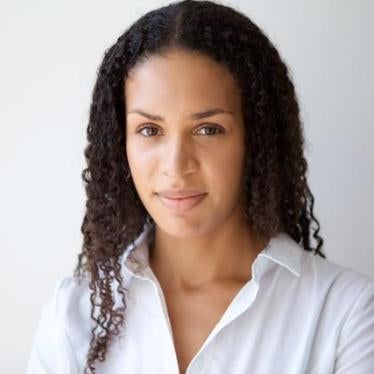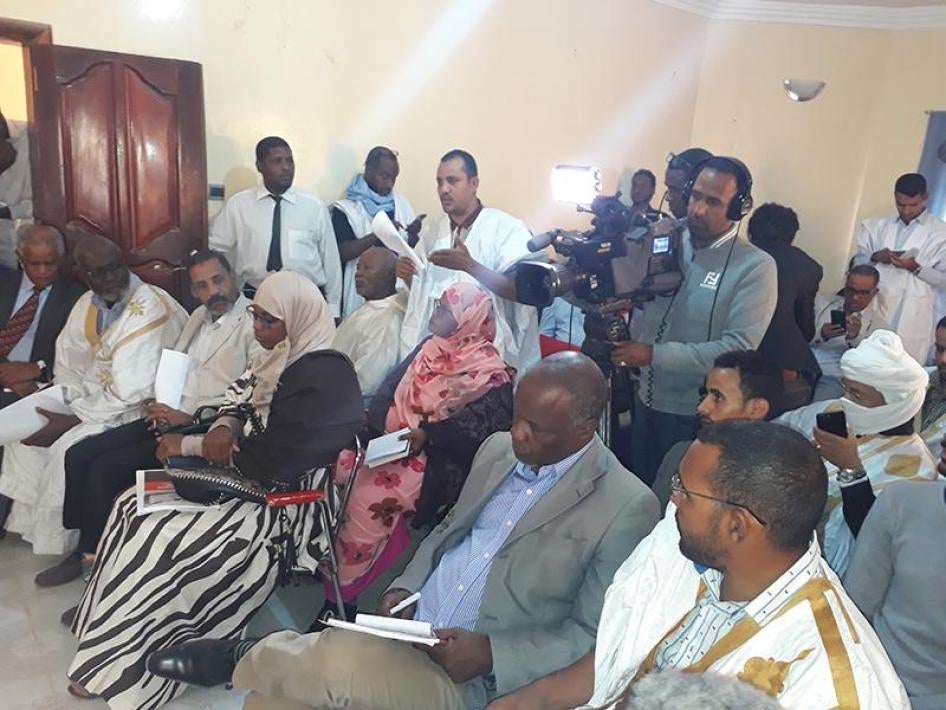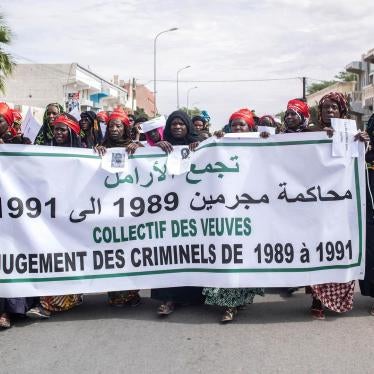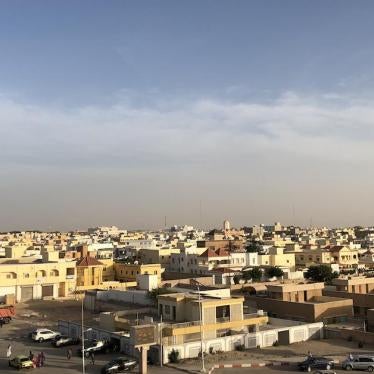“You said human rights? You need to get the OK elsewhere,” said the hakim (a municipal officer) after we asked him to hold a press conference earlier this month in a hotel in Mauritania’s capital, Nouakchott. Normally, the hakim decides on such permits, but since our event involved presenting a report critical of the government’s restrictions on human rights defenders, he wasn’t taking any chances.
“If the Human Rights Commissariat approves you, then I will too,” he said, referring to a governmental body. Over the next 48 hours we requested permission from the Commissariat, ministries and other official bodies but got no reply. As the February 12th date of our report launch neared, the hotel told us what we suspected: No permit, no conference.
Our report detailed the laws and practices Mauritania uses to curb human rights activism. The obstacles we faced to launching our report in Nouakchott gave us a taste of what Mauritanians face when they want to speak out on sensitive issues, especially those touching on ethnicity, discrimination, and accountability for past abuses.
We ultimately held our press conference in a cramped room in the headquarters of the National Forum of Human Rights Organizations, a collective of legally recognized Mauritanian nongovernmental organizations.
Reliable sources told us that while authorities would not block the conference, saboteurs would disrupt the event – a common occurrence at independently organized human rights activities. Indeed, shortly after our presentation a hostile question from a “journalist” triggered a virulent reaction from an activist, and everything descended into a shouting free-for-all.
Mauritania can be much more repressive than this. Activist Abdallahi Salem Ould Yali has been detained since January 24 for social media posts decrying discrimination, and Mohamed Ould Mkhaitir until recently faced the death penalty for apostasy, because of a blog post criticizing caste discrimination.
Authorities did allow our teams into the country and even met with us. But activists face impediments, as the recent government suppression of protests by anti-slavery activists against food insecurity illustrates.
In April, scores of foreign state and independent delegations will descend on Nouakchott for the 62nd ordinary session of the African Commission on Human and Peoples Rights. This would be a great opportunity for Mauritania’s leaders to display full respect for the rights of local activists, no matter how critical their message.











